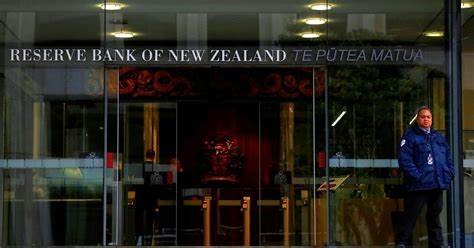


Image Credit: Reuters
The unexpected resignation of New Zealand's central bank governor, Adrian Orr, has raised many questions, especially for an institution known for its transparency. Orr, who stepped down on Wednesday in Wellington with three years remaining in his second five-year term, cited personal reasons, though the Reserve Bank (RBNZ) did not provide further details. Board Chair Neil Quigley acknowledged that the role of the governor involves constant scrutiny and that Orr may have felt it was time to move on after achieving his goals.
Orr's departure comes at a crucial time for New Zealand as the RBNZ is working to boost the economy after a recession by lowering interest rates. His successor will face challenges, including navigating the effects of a global trade war on the country's export-dependent economy. Despite Orr’s resignation, economists believe it won’t affect the current monetary policy, which includes reducing the Official Cash Rate from 5.5% to 3.75%, with more cuts expected.
Orr, who was also set to host a conference this week on the RBNZ’s 35 years of inflation targeting, is now on leave, and his deputy, Christian Hawkesby, will take over as acting governor until the end of the month. Finance Minister Nicola Willis will appoint a temporary governor based on the board's recommendation, with Hawkesby seen as a likely candidate for the role. Other potential contenders for the permanent position include current assistant governor Karen Silk and external candidates like Dominick Stephens or John McDermott.
Orr, known for his colorful personality, became governor in 2018 with the goal of improving the RBNZ’s communication. However, his tenure saw mixed results, with Orr often clashing with journalists and think tanks, particularly over policy decisions like raising bank capital requirements. Tensions also grew between Orr and Willis, both before and after her appointment as finance minister, especially regarding the bank’s policies during the pandemic and its impact on the housing market.
While inflation has slowed to 2.2%, within the RBNZ's target range, the bank still faces other challenges, including negotiations with the government over funding and potential adjustments to risk-capital weights for banks. Willis has pressed for budget cuts at the bank and suggested changes to enhance competition among lenders, though Orr has opposed these proposals. Both the finance minister and Prime Minister Christopher Luxon declined to discuss the reasons for Orr’s resignation, with Willis stating she had not asked him to leave.
Paraphrasing text from "Bloomberg"all rights reserved by the original author
